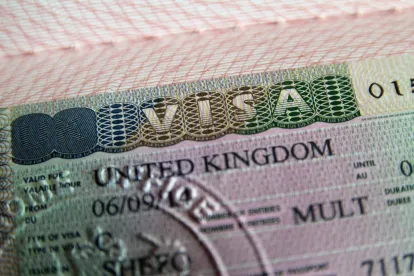Unexpectedly required to remain in the United Kingdom and concerned about your tax residency? HM Revenue and Customs (HMRC) confirm what circumstances they consider exceptional in the context of the Coronavirus (COVID-19).
IN DEPTH
HMRC has released guidance on what it considers to be exceptional circumstances for the Statutory Residence Test (SRT) in the context of the COVID-19 pandemic.
The SRT provides, through a series of tests, a definitive way to determine whether or not an individual is resident in the United Kingdom for a tax year and heavily relies on the number of days that an individual is present in the country.
The basic rule is that an individual is treated as being in the United Kingdom on any day where they are in the United Kingdom at midnight at the end of that date, known as the ‘midnight rule’. There are two exceptions to the midnight rule: transit days and time spent in the United Kingdom due to exceptional circumstances beyond an individual’s control.
HMRC’s interpretation of exceptional circumstances is relatively narrow (i.e. bereavement or serious illness) with travel problems not usually regarded as exceptional. However, yesterday’s guidance confirms that days spent in the United Kingdom can be disregarded for the SRT if you:
-
Are quarantined or advised by a health professional or public health guidance to self-isolate in the United Kingdom as a result of the virus
-
Find yourself advised by official Government advice not to travel from the United Kingdom as a result of the virus
-
Are unable to leave the United Kingdom as a result of the closure of international borders, or
-
Are asked by your employer to return to the United Kingdom temporarily as a result of the virus
A maximum of 60 days in the United Kingdom can be disregarded under the ‘exceptional circumstances’ exception and the guidance makes no mention of extending that ceiling.
In terms of being quarantined, there is no indication of whether you need to be directly or indirectly infected by the virus nor what evidence may be required but the guidance from Public Health England clearly states that if you live alone and have symptoms of COVID-19, however mild, you should stay at home for 7 days. Similarly, if you live with others and you or anyone else in the household starts displaying symptoms, staying at home for 14 days will greatly reduce the overall amount of infection the household could pass on to the wider community.
It is also worth noting that as the United Kingdom has not closed its borders as yet, the guidance only accounts for the scenario that you are unable to leave the United Kingdom as a result of the closure of international borders. The guiding presumption is that the Foreign and Commonwealth Office’s advice against all non-essential travel comes within the parameters of the second circumstance listed and this may be updated in due course.
As the guidance rightly states, events resulting from the impact of the virus are changing rapidly but as the concept of residence is fundamental to the determination of an individual’s UK tax liability it is important to maintain records where you can and remain conscious of the 60 day timeframe.




 />i
/>i
